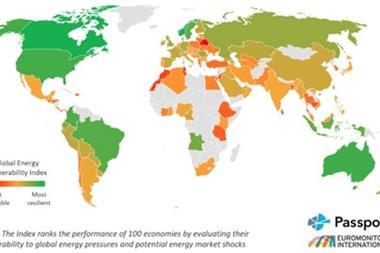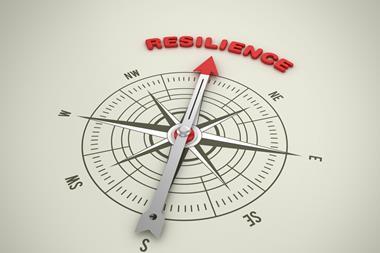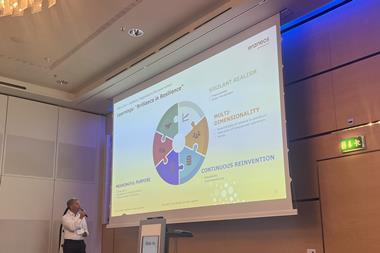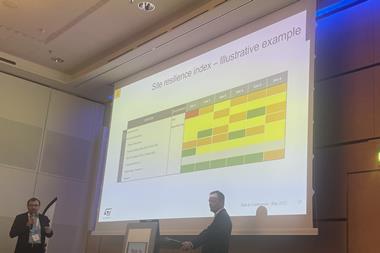Weakening customer demand, cyber security, increased taxation, and access to talent are other major challenges - survey
Almost half (43%) of global business leaders surveyed still see energy price increases as their biggest challenge this year, despite Western countries’ best efforts to impose energy spend caps over the winter months and control inflation.
This is according to research by Dun & Bradstreet, which surveyed 3,396 business leaders across 18 countries.
Concern around energy price increases is felt most strongly in Europe, most notably in Poland, with 60% seeing this as their biggest challenge as the continent navigates yet more economic headwinds.
However, in the US, this datapoint dropped sharply to a quarter (27%) – likely because of the country’s reliance on its own energy supply.
Time for resilience
Although the survey found that 27% of leaders rate their business’ resilience during turbulent times as “extremely resilient”, given the ongoing economic uncertainty, it is imperative for more businesses to develop a higher level of resilience to remain competitive and position themselves for growth and innovation.
“In today’s market, uncertainties abound, and these are having a simultaneous and substantial impact on the business environment,” said Rikard Candell, vice president of Data Science at Dun & Bradstreet.
“Companies are facing a host of challenges, including persistently high inflation, continued monetary policy tightening and high interest rates, increased energy costs, and the lingering effects of the pandemic, as well as war and geopolitical instability.
“With so many market issues weighing on their minds, business leaders find it exceedingly difficult to predict what comes next, and decision-making has become correspondingly more challenging.
Increased cost of doing business
The overall increases to the cost of doing business is expected to have an acute impact on more than a third (37%) of businesses surveyed in 2023, as the world continues to recoup its economic losses following the pandemic.
With that in mind, it’s concerning to see that 85% of businesses currently do not use data to understand disruption in their ecosystem, thought Candell.
“There is no doubt that rising energy prices and the ongoing cost-of-living crisis present significant threats to businesses. While business leaders worldwide recognise the pivotal role of data and the insights it provides for their organisations’ future success, many struggle to unlock its full potential.
“As businesses aim to increase their resilience, data and analytics will be the cornerstone of critical decision-making. It can help you understand how your business is being impacted and identify risks and opportunities alike.
”Leveraging data and analytics can also enable companies to be proactive, agile and plan ahead using scenarios, such as the impact of further increased interest rates or energy prices on their fiscal planning, or potential disruptions to their supply chain.
”By leveraging data insights companies can better prepare to overcome the next potential disruption, as well as any future disruptions that may occur, and better position themselves to grow and thrive.”




















No comments yet